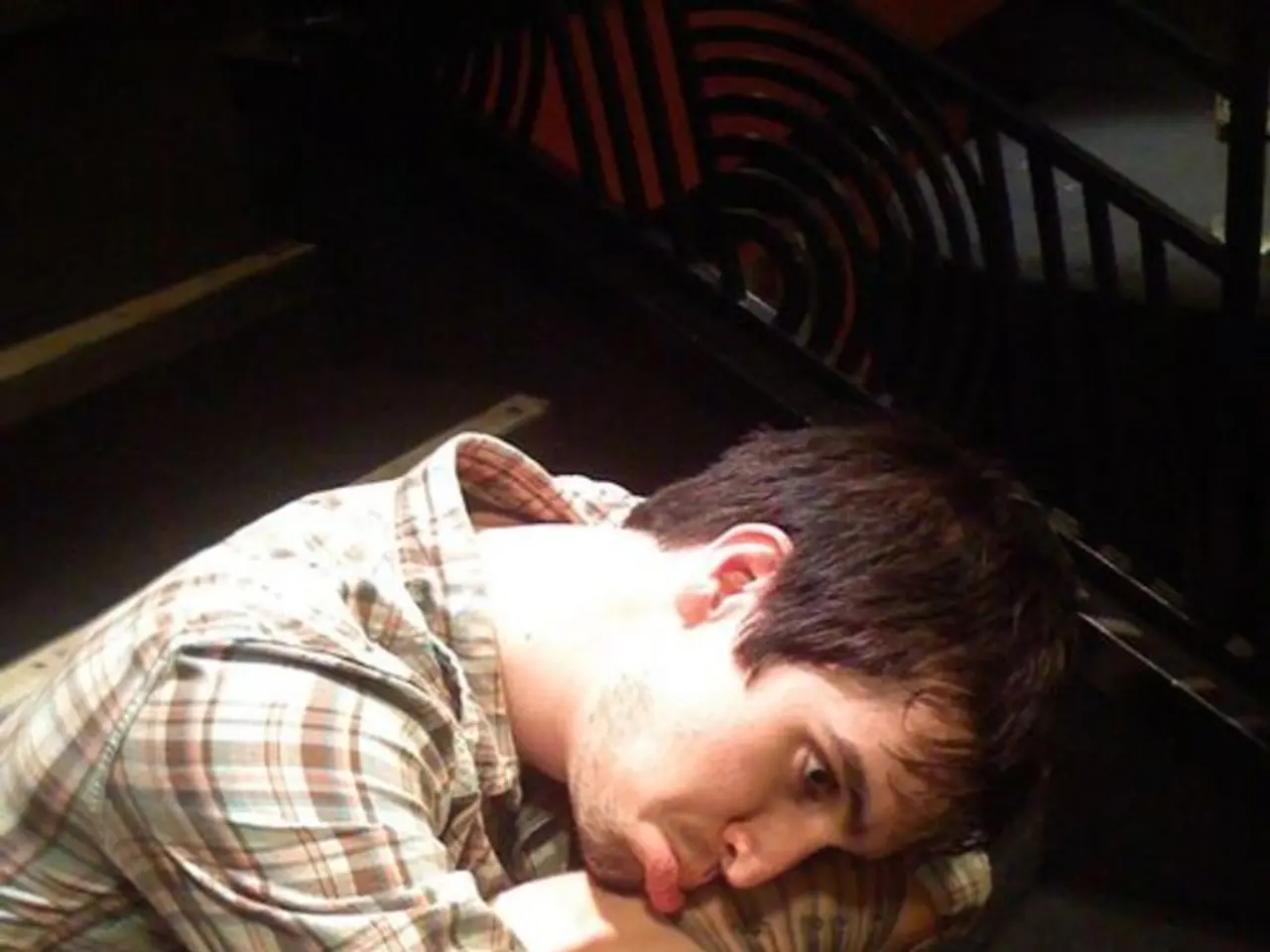Mental health exploration: Insights into bipolar disorder, schizophrenia, and additional psychiatric conditions
Flight of ideas, a rapid and disorganized flow of thoughts, is a common symptom in certain psychiatric and neurological conditions. This phenomenon, characterized by speaking quickly, switching rapidly between ideas, incoherent speech, and difficulty following or understanding speech, can be distressing and challenging to manage.
Common Causes and Associated Conditions
Flight of ideas is most commonly linked to manic episodes in bipolar disorder, where individuals experience pressured speech and rapid shifting of thoughts. It is also observed in schizophrenia and brain injuries, reflecting formal thought disorder characterized by disorganized thinking and speech. Mania and severe mood disorders, as well as other mental health conditions such as obsessive-compulsive disorder and delirium, may also present with flight of ideas.
Recommended Treatment
Treatment for flight of ideas typically involves a combination of medication, psychotherapy, and supportive care. Medication, tailored to the underlying disorder such as bipolar disorder or schizophrenia, is often used to reduce symptoms of mania and psychosis. Psychotherapy, particularly cognitive behavioral therapy and supportive psychotherapy, can help patients develop coping strategies to manage thought disorganization and associated mood symptoms. A comprehensive evaluation is crucial for identifying and addressing underlying causes such as brain injury, psychiatric disorders, or medical conditions.
Coping Strategies for Individuals Experiencing Flight of Ideas
Individuals experiencing flight of ideas can benefit from practices such as awareness and monitoring, stress reduction techniques, and maintaining a structured environment. Regular mental health follow-ups and involvement in support groups can also improve coping and prevent relapse.
Anyone who is experiencing flight of ideas or mild symptoms of mania or psychosis should contact a doctor as soon as possible. In case of an emergency, such as showing any signs that they may harm themselves or others, call 911 and seek advice on how to proceed. If this is not possible, take the person to the nearest emergency medical facility.
Seeking Help in a Crisis
Veterans in crisis can contact the Veterans Crisis Line at 800-273-8255. For those not in the United States, Befrienders Worldwide provides a helpline in your country. In the United States, the 988 Lifeline and Crisis Text Line offer free and confidential support 24/7. If someone is threatening to harm themselves, the National Suicide Prevention Lifeline at 800-273-8255 is available.
If someone is discussing harming themselves or others online or displaying dangerous behaviors, contact the social media platform they are using or call 911 and ask how to proceed. Suicide rates decrease when people check in on at-risk individuals.
Lifestyle Habits for Mental Health
Certain lifestyle habits can reduce the chance of mania and psychosis. These include eating a healthy, balanced diet, practicing good sleep hygiene, managing stress, getting regular vigorous exercise, tracking symptoms, mood levels, sleeping patterns, life events, and stressful or anxiety-producing events, tracking medication usage and watching for potential side effects, talking openly with healthcare professionals, sticking to treatment plans, learning to recognize when symptoms are developing and what triggers them.
In summary, flight of ideas is a symptom that may occur in mania, psychosis, and certain neurodevelopmental conditions. Treatment focuses on medication aimed at the primary disorder, psychotherapy, and supportive care. Coping strategies include stress management, creating structured environments, and ongoing professional support. If you or someone you know is experiencing flight of ideas, seek help immediately.
- Manic episodes in bipolar disorder, schizophrenia, brain injuries, and other mental health conditions like obsessive-compulsive disorder and delirium can lead to flight of ideas, a rapid and disorganized flow of thoughts.
- Treatment for flight of ideas often involves a combination of medication, psychotherapy, and self-care practices such as stress reduction techniques, maintaining a structured environment, and regular mental health follow-ups.
- Medication, tailored to the underlying disorder, is often used to reduce symptoms of mania and psychosis, while psychotherapy can help patients develop coping strategies for thought disorganization and associated mood symptoms.
- Health-and-wellness practices, including a healthy diet, good sleep hygiene, fitness-and-exercise, tracking symptoms and mood levels, and meditation, can also help reduce the chance of mania and psychosis.
- In severe cases, individuals experiencing flight of ideas may pose a danger to themselves or others; in such situations, immediate medical attention is necessary, and emergency services should be contacted.
- Skin-care and therapies-and-treatments, such as those for neurological-disorders and mental-health conditions, may also play a role in managing flight of ideas and underlying disorders.
- It's essential to prioritize one's health and wellness through proper nutrition, self-care, and medical attention when managing mental health conditions associated with flight of ideas.




